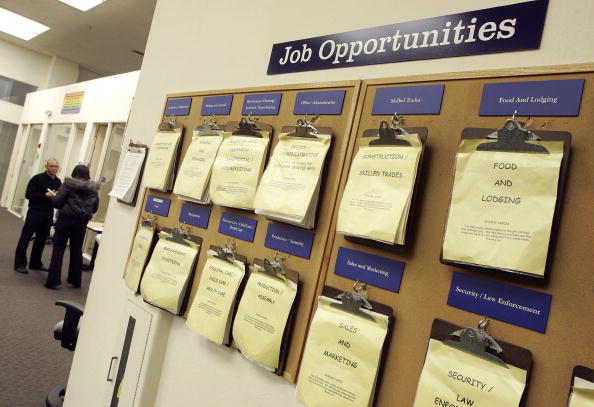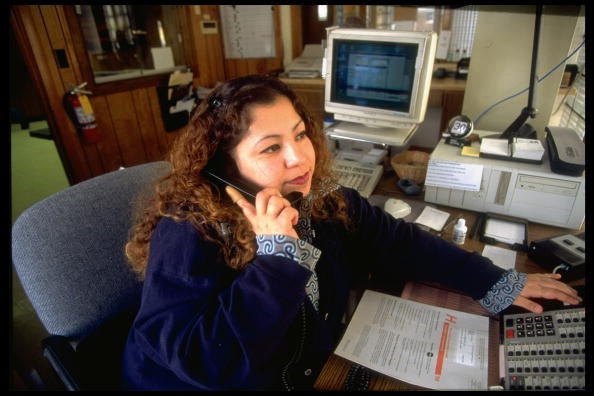How Wisconsin is using Data Labs to ensure people get individualized support to thrive in the workforce
By Ashleigh Fryer

When Courtney* first enrolled her teenage son Cortez in Wisconsin Promise in 2015, she wouldn’t have guessed she was changing the trajectory of her entire family.
The program was a five-year federal demonstration project that aimed to improve the education and career outcomes of low-income children with disabilities receiving Supplemental Security Income in six different locations across the country. For Cortez—who struggles with learning obstacles and memory loss—it was the first step toward gaining self-sufficiency and meaningful work experience.
The results were almost immediate: with the help of his Promise counselors, Cortez learned how to better advocate for himself, develop and articulate his skills and interests, and apply for and maintain jobs. It worked so well that Courtney also enrolled her younger son, Trayvon, who has Spina Bifida and is legally blind. By the time Promise concluded in 2020, both of the boys were employed and on their way to financial independence.
Inspired by the success of Promise—which helped families like Courtney’s across Wisconsin—the Wisconsin Department of Workforce Development (DWD) announced the creation of the Worker Connection Program in July 2021. The $10 million allocated for the program funds 34 career coach positions in two regions of the state. These navigators—modeled after the Promise family advocates and their focus on individual empowerment and positive reinforcement—help participants understand available options, support them in making the family-centered choices, and connect them to employment and supportive services.
Aimee Jahnke and Ellie Hartman, who are both members of the team at DWD working to make Worker Connection a long-term program, knew it would be a challenge from the start. Not only were they trying to enroll 2,500 participants, but they also had to show impact in 18 months in order for the program to receive renewed funding. The program was designed with no restrictions on individual eligibility but was created to help those impacted by the COVID-19 pandemic and related recession. Such broad parameters meant that anyone could get the help they needed, but left the Wisconsin team without a clearly defined starting place.
That’s when they heard about Data Labs: Roadmap to Recovery, a program created by the Beeck Center for Social Impact + Innovation at Georgetown University and the National Governors Association to empower state governments to use data more effectively, efficiently, and equitably. Over the course of nine months, Wisconsin was one of eight state teams working with the Beeck Center’s Data Labs team to develop a data project supporting local COVID-19 economic recovery efforts.
“One thing we saw in Promise that we wanted to continue with Worker Connection was data-based decision making,” Hartman said. “We knew Data Labs could help us make sure we were building evaluation into the process, as well as the data infrastructure so that we truly can make data- and evidence-based decisions.”
For both Hartman and Jahnke, one of the first steps toward ensuring the success of the Worker Connection program was to create an effective evaluation plan.
“Without tracking progress, without checking back with those you’re serving, good intentions can lead to missed opportunities, and the success of the program might stagnate if you’re not checking your data,” Hartman said.
Throughout Data Labs, the Wisconsin team worked with Beeck Center program manager Samantha Levy to use program tools to support their evaluation strategy.
“We spent the first months talking about developing lines of inquiry, prototyping mockups of the reports they would need to produce, conducting a data audit to see what they were already collecting and what they would need,” said Levy. “Then they turned to translate that into the data tools they would need to conduct their evaluation on only an 18-month timeline.”
With such a short period of time to run the pilot and produce results, the team knew their plan needed to be tight yet comprehensive enough to tell a compelling story.

“What really endeared me to the team was their clear motivation for a larger mission,” said Levy, “They joined Data Labs to make sure they were using every resource at their disposal to reduce the number of job seekers falling through the cracks of the system.”
“For some folks, they’re not participating in our labor market because they don’t think that they have the right skills to be able to engage in it,” Jahnke said. “Some of that has to do with the way that we traditionally think about skills, and some of that has to do with people being told their entire lives that they’re broken and need to be fixed. They’re not broken, we just need information about where they fit.”
Jahnke understands how difficult it can be to navigate a labor market that isn’t designed for individuals facing complex barriers to employment. Her sister lives with a disability, and other family members of hers are dealing with the collateral consequences of justice system involvement, substance misuse, and other physical and mental challenges.
“My sister’s life improved dramatically when she was able to go back to work,” she said. “When she was able to find a job where she could be her wonderful self, it was about more than just the money: she got all of her power back.”
Her sister’s experience is why Jahnke is committed to ensuring the Worker Connection Program is focused on building each participant’s “positive profile”—the interests, skills, and abilities that make them the most successful selves within their families, at their places of work, and in their communities. The approach proved successful throughout the Promise pilot, and, with the help of Data Labs, the team now has the building blocks to track its success through Worker Connection.
“A lot of what Data Labs is trying to do is show how to connect different data so you can tell a full story,” Jahnke said. “Because without the full story, we focus on what’s broken and we can’t start focusing on what works and how we can help leverage that in the system to improve outcomes for our communities.”

Courtney can attest to the positive ripple effect that can come out of a program like Promise or Worker Connection. After seeing the way counselors supported and advocated for her sons, she got involved too. It wasn’t long after she engaged in the program’s family advocacy training that she and her husband, Ramon, decided to launch their first business—a cleaning service that they hope will build wealth and stability for their family.
“It [was] wonderful to see every family member of the age of 15 in that house—they really [took] advantage of all of our services at Promise,” counselor Kitra Thomas said.
Ashleigh Fryer is the Storyteller-in-Residence at the Beeck Center, focused on humanizing social impact to help catalyze change. You can find her on LinkedIn.